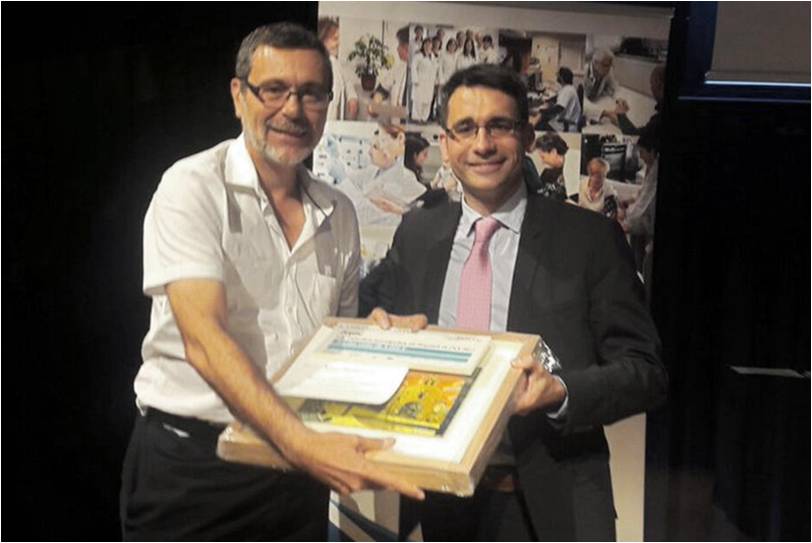Dr. Xavier Matias-Guiu, researcher at the Bellvitge Biomedical Research Institute (IDIBELL), and head of the Pathology Department of Bellvitge University Hospital and Arnau de Vilanova Hospital in Lleida, received today an
ICS award for his research career during the 9th ICS Research Day, which was held in the Llotja of Lleida, organized by the Lleida Biomedical Research Institute – Dr. Pifarré Foundation (IRBLleida). For the first time, this distinction has been awarded ex aequo, including researchers Arturo Evangelista, Carmen Fuentelsaz and Silvia Bielsa in addition to Dr. Matias-Guiu.
Xavier Matias-Guiu received his doctorate in Medicine and Surgery from the Autonomous University of Barcelona in 1987. Prior to working at ICS, he worked as a pathologist at the Santa Creu and Sant Pau Hospital and at the Hospital del Mar. In the research field, Matias-Guiu was the director of the Institute of Biomedical Research of Lleida (IRBLleida) from 2006 to 2015), institution to which he continues linked as head of the Oncology Pathology Group. He is also co-leader of the Gynecological Cancer Group of IDIBELL.
His intense research work has translated in the publication of 230 articles in relevant indexed journals and about 20 books. His main line of research focuses on the molecular mechanisms of endometrial cancer , aiming to identify the genetic alterations that have to do with aggressiveness, metastasis or resistance to treatments.
He has received, among others, the Josep Trueta Prize for Scientific Research and the Narcís Monturiol Medal for Scientific and Technological Merit. He holds two patents for methods to diagnose different types of cancers.
In the teaching field, he is a Professor of Pathological Anatomy at Lleida University and has been an invited associate professor at the University of Medicine and Pharmacy of Târgu Mureş (Romania). He has been appointed member of the international group to define the WHO classifications of thyroid cancer (2003), uterine cancer (2012) and, more recently, endocrine cancer (from 2015 to 2016).

